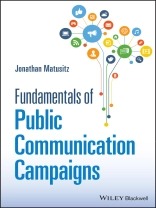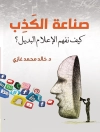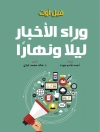The most comprehensive and up-to-date textbook on public communication campaigns currently available
Fundamentals of Public Communication Campaigns provides students and practitioners with the theoretical and practical knowledge needed to create and implement effective messaging campaigns for an array of real-world scenarios. Assuming no prior expertise in the subject, this easily accessible textbook clearly describes more than 700 essential concepts of public communication campaigns. Numerous case studies illustrate real-world media campaigns, such as those promoting COVID-19 vaccinations and social distancing, campaigns raising awareness of LGBTQ+ issues, entertainment and Hollywood celebrity campaigns, and social activist initiatives including the #Me Too movement and Black Lives Matter (BLM).
Opening with a thorough introduction to the fundamentals of public communication campaigns, the text examines a wide array of different health communication campaigns, social justice and social change campaigns, and counter-radicalization campaigns. Readers learn about the theoretical foundations of public communication campaigns, the roles of persuasion and provocation, how people’s attitudes can be changed through fear appeals, the use of ethnographic research in designing campaigns, the ethical principles of public communication campaigns, the potential negative effects of public messaging, and much more.
* Describes each of the 10 steps of public communication campaigns, from defining the topic and setting objectives to developing optimal message content and updating the campaign with timely and relevant information
* Covers public communication campaigns from the United States as well as 25 other countries, including Australia, Brazil, Canada, China, Egypt, India, Israel, Singapore, South Korea, and the United Kingdom
* Offers a template for creating or adapting messages for advertising, public relations, health, safety, entertainment, social justice, animal rights, and many other scenarios
* Incorporates key theories such as the Diffusion of Innovations (Do I) theory, social judgment theory (SJT), the Health Belief Model (HBM), social cognitive theory (SCT), and self-determination theory (SDT)
* Includes in-depth case studies of communication campaigns of Islamophobia, antisemitism, white supremacism, and violent extremism.
Fundamentals of Public Communication Campaigns is the perfect textbook for undergraduate students across the social sciences and the humanities, and a valuable resource for general readers with interest in the subject.
Table des matières
Part I Introducing Public Communication Campaigns 9
Chapter 1 Definitions, Strategies, and Background Information 11
Chapter 2 The 10 Steps of Public Communication Campaigns 47
Chapter 3 Persuasion in Public Communication Campaigns 80
Chapter 4 Thought-Provoking Public Communication Campaigns 121
Part II Health Communication Campaigns 153
Chapter 5 Health Communication Campaigns: General Perspectives 155
Chapter 6 Differences in Literacy and Culture in Health Campaigns 189
Chapter 7 Public Communication Campaigns during the COVID-19 Pandemic 217
Chapter 8 Entertainment-Education, Digital Games, and Celebrity Campaigns 249
Part III Communication Campaigns For Social Justice and Social Change 285
Chapter 9 Social Justice and Social Change 287
Chapter 10 The #Me Too Campaign 310
Chapter 11 Public Communication Campaigns for LGBTQ+ Communities 336
Chapter 12 Black Lives Matter Campaigns 360
Part IV Terrorist, Extremist, And Anti-Terrorist Communication Campaigns 389
Chapter 13 Terrorist Communication Campaigns: Two Major Case Studies 391
Chapter 14 Public Communication Campaigns of White Supremacism 426
Chapter 15 Public Communication Campaigns of Islamophobia and Antisemitism 451
Chapter 16 Antiterrorist Public Communication Campaigns 476
A propos de l’auteur
JONATHAN MATUSITZ is Associate Professor in the Nicholson School of Communication and Media at the University of Central Florida. His research
focuses on the role of communication in terrorism, symbolism in terrorism, the globalization of culture, and health communication. He is the author of more than 150 academic publications and six academic books on terrorism. Dr. Matusitz has delivered presentations on terrorism to the Florida Department of Law Enforcement, the Department of Homeland Security, the Transportation Security Administration, and other law enforcement agencies.












